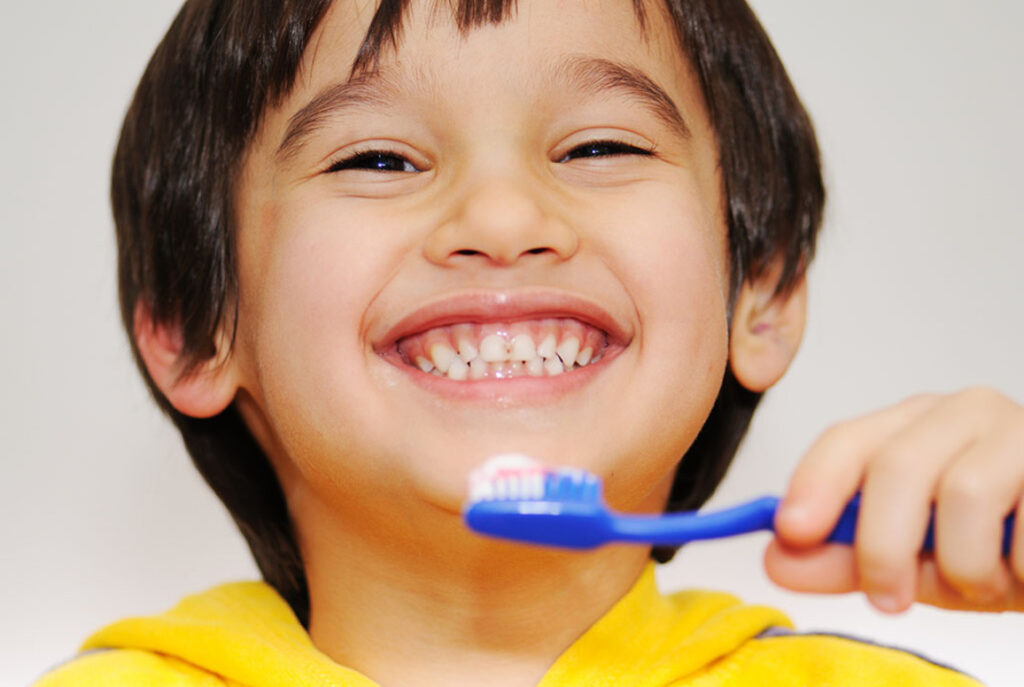A habit is a tendency towards an act that has become a repeated performance, relatively fixed, consistent, and easy to perform by an individual. Habits are acquired as a result of repetition. In the initial stages, there is a conscious effort to perform the act, later the act becomes less conscious and if repeated often enough may enter the realms of unconsciousness.
Contents:
- What is thumb and digit sucking?
- Phases of the habit.
- Effects on dentition and occlusion.
- Management.
What is Thumb and Digit Sucking?
The placement of the thumb or one or more fingers at varying depths in the oral cavity. It is one of the most commonly seen habits that most children indulge in. the presence of this habit is considered quite normal till the age of 3.5 to 4 years of However But, persistence after this age can lead to various malocclusions.
Phases of the Habit:
Phase one: (normal and sub-clinically significant)- it is seen during the first three years of life.
Phase two: (clinically significant) – this phase extends between 3 to 6 years of age. The presence of sucking in this phase is an indication of the child being in great anxiety. Treatment to solve dental problems should be initiated in this phase.
Phase three: (intractable sucking) – any thumb sucking persisting beyond the fourth and fifth year should alert the dentist of some psychological aspects of the habit.
Effects on Dentition and Occlusion
It is known to cause several effects on the teeth and the tooth-supporting structures.
The severity of malocclusion depends on a trident of factors-
- Duration – the amount of time spent indulging the habit.
- Frequency – the number of times this habit was activated during a day.
- Intensity – the vigor with which the habit is performed.
The effects are given the following –
a. Labial tipping of the maxillary anterior teeth resulting in proclination.
b. Increased overjet due to proclination. Some children rest their thumb on the mandibular anterior leading to lingual tipping of them thus further increasing the overjet.
c. Anterior open bite, which further leads to tongue thrusting and hypotonic upper lip.
d. Narrow maxillary arch and contracted cheek muscles, which predisposes to posterior crossbites.
Management of Thumb Sucking
Psychological approaches – usually the habit is found in children lacking parental care, love, and affection. Thus the parents should be counseled to provide the child with adequate love and affection.
Dunlop put forward a theory called the beta hypothesis that states that the best way to break the habit is the conscious and purposeful repetition of the act.
He suggests that the child should be asked to sit in front of the mirror and purposefully perform the habit and observe himself/ herself. This is a very effective
method to break the habit.
Mechanical aids – they are reminding appliances that basically assist the children who are willing to quit the habit but are not able to do so.
Appliances can be removable cribs or fixed heavy gauge steel wires.
Chemical approaches – application of bitter-tasting or foul-smelling preparations placed on the thumb.
Pathak Dental Clinic is one of the most famous Dental Clinics in Pune, India. Dr. Manish Pathak is providing the provides for teeth cleaning and treatment at very affordable prices.
We’ve covered this topic in detail in our YouTube playlist – click here to watch and learn more…
FAQs on Thumb and Digit Sucking – By Dr. Manish Pathak, Pediatric Dentist in Pune
Q. Why do children develop the habit of thumb sucking?
A. Children often suck their thumb for comfort, relaxation, or as a response to stress or anxiety. It gives them a sense of security.
Q. When should parents be concerned about thumb sucking?
A. If the habit continues beyond 4 years of age, it may affect the teeth and jaw alignment. Consulting a pediatric dentist in Pune like Dr. Manish Pathak is advised.
Q. What are the effects of thumb sucking on teeth?
Prolonged thumb sucking can lead to protruded front teeth, open bite, crossbite, and changes in jaw growth or facial appearance.
Q. How can thumb sucking be stopped?
The habit can be managed using positive reinforcement, counseling, habit-breaking appliances, or bitter nail solutions under dental supervision.
Q. Can thumb sucking cause permanent dental damage?
If continued for many years, it may cause permanent changes in tooth position or bite alignment, which may require orthodontic treatment later.
Q. What is the best age to treat thumb sucking habit?
The ideal time is between 3 to 6 years of age, before permanent teeth start erupting.
Q. Are there dental appliances to stop thumb sucking?
Yes, dentists use habit-breaking appliances like palatal cribs or reminders that help the child stop the habit gently and effectively.
Q. Does thumb sucking affect speech?
Yes, prolonged thumb sucking can lead to speech issues like lisping due to changes in tongue and teeth position.
Q. How can Dr. Manish Pathak help with thumb sucking treatment?
At Pathak Dental Clinic, Pune, Dr. Manish Pathak offers gentle counseling, habit correction therapy, and customized dental appliances to help children overcome thumb sucking safely.
Find Us Here: 11/11 Akurdi Chikhli Road, Near Dwarka Collection, Kasturi Market, Sambhaji Nagar, Thermax Chowk, Below Nutan Jewellers, Chinchwad, Pune, Pimpri-Chinchwad, Maharashtra 411019
Call: +91 9762126132




